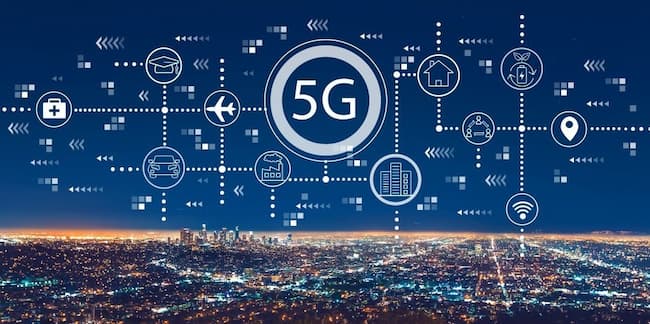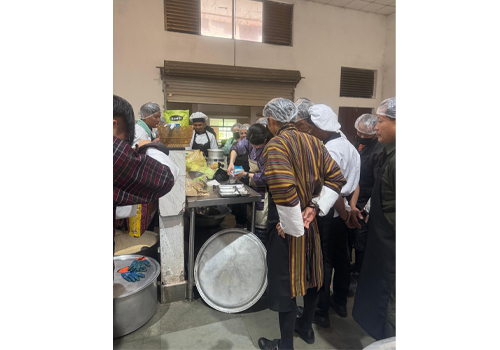Copyright bizwatchnigeria

While 5G-enabled smartphones are flooding the Nigerian market, the infrastructure required to support them remains woefully inadequate a growing disconnect that experts warn could stall the country’s digital transformation ambitions. Across major cities such as Lagos, Abuja, and Port Harcourt, consumers are embracing 5G-capable devices at an unprecedented rate. Global forecasts show 5G device sales are expected to rise by 13.2 percent in 2025, following a 16 percent jump recorded in 2024. In the Middle East and Africa region, smartphone shipments grew by 3 percent year-on-year in the second quarter of 2025, buoyed by improving economic conditions and aggressive promotional campaigns. Affordable 5G-ready models from Xiaomi, Samsung, and other brands now account for nearly half of all new smartphone purchases in Nigeria. However, this surge in device ownership contrasts sharply with the nation’s sluggish 5G infrastructure rollout. Only 12.7 percent of Nigeria’s mobile towers currently support 5G, with coverage limited to select urban areas, leaving vast rural regions — and even some state capitals — without access. According to the Nigerian Communications Commission (NCC), 5G services presently reach less than 5 percent of the population, compared to 45 percent for 4G. Growing Coverage Gaps A joint NCC–Ookla report revealed glaring disparities in network accessibility. In Lagos, where over 41,000 5G-capable devices were detected, a 70.9 percent coverage gap means many users cannot connect to available networks. Abuja fares only slightly better, with a 65.6 percent gap affecting more than 16,000 users. This limited access has far-reaching implications. Lagos, Africa’s largest city and a thriving tech hub, is losing potential productivity in sectors dependent on real-time data, digital commerce, and remote operations. “Device adoption reflects confidence in 5G’s potential, but without robust network expansion, we’re creating a bottleneck,” said telecom analyst Jide Awe, warning that Nigeria risks falling behind peers like South Africa, where 5G coverage is more extensive despite similar economic challenges. Cost Barriers and Infrastructure Deficits While 5G phones have become relatively affordable, they remain out of reach for millions. MTN Nigeria CEO Karl Toriola highlighted affordability as a critical barrier, noting that 5G handsets cost between ₦120,000 ($75) and ₦2 million ($1,250) unattainable for many of Nigeria’s 88.4 million citizens living in extreme poverty. “The biggest barrier is the cost of handsets,” Toriola explained. “We are working with the Ministry of Communications to promote local smartphone assembly and support financing through our MoMo platform.” Beyond affordability, operators are contending with massive operational challenges. The NCC disclosed that the industry faces 1,100 fibre cuts daily, 545 access denials, and 99 cases of generator and battery theft, severely disrupting network reliability. Policy Reforms and Private-Sector Push To address these challenges, the government approved a 50 percent telecom tariff adjustment in January 2025, unlocking over $1 billion in infrastructure investment for fibre backbone expansion and base station upgrades. The NCC also signed a Memorandum of Understanding (MoU) with federal and state ministries to classify telecom infrastructure as Critical National Infrastructure (CNI) making fibre vandalism a criminal offence. “Cutting fibre is now a criminal act, which will safeguard our investments,” said Airtel Nigeria CEO, Dinesh Balsingh. Telecom operators are also adopting AI-driven solutions to enhance rollout efficiency. MTN Nigeria’s Chief Technical Officer, Yahaya Ibrahim, said the company is using artificial intelligence to identify high-demand zones such as Lagos and Abuja. “We won’t deploy 5G where there are no 5G handsets,” Ibrahim stated, revealing that only 4.9 million 5G-capable devices — mostly iPhone 13 and newer models — are currently active nationwide. Airtel, on its part, is expanding its fibre network and deploying small-cell antennas in dense areas like Victoria Island and Computer Village to improve connectivity. It has also partnered with Starlink and OneWeb to extend 4G and 5G access to underserved rural communities. Over the past two years, Airtel has relocated 3,000 kilometres of fibre infrastructure to strengthen network resilience. Bridging The Digital Divide Despite these efforts, rural regions still suffer up to 50 percent slower network speeds than urban centres, deepening Nigeria’s digital divide. Telecom operators are now urging the government to introduce targeted subsidies and incentives to accelerate high-speed network expansion. “Expanding access to reliable broadband is critical to Nigeria’s digital future, No one should be left behind in the race toward full digital inclusion.”



